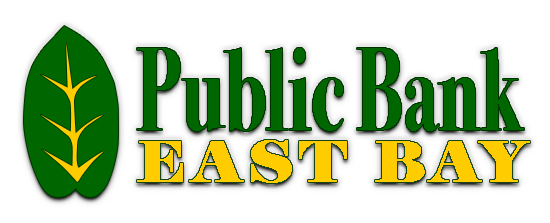PBEB Lending Priorities
Collaborating on Economic Equity
In designing our viability study, we concentrated on how to address issues of income inequality, systemic racism, institutional racism by private banks, and building wealth in the BIPOC communities. With this in mind, we focused the initial bank priorities and financial projections on the following four loan programs. The detailed loan programs of the Public Bank are subject to change as further research is being conducted for the business plan and as regulatory agencies are going to review the proposed programs.
PBEB Focus Areas
SUPPORTING SMALL BUSINESSES
PBEB would cooperate with community banks and CDFIs to scale their programs offering low-interest loans to underserved entrepreneurs with a focus on BIPOC small businesses. Through flexible lines of credit, loan guarantees and loan purchase programs PBEB would provide additional liquidity and reduce some of the risk of local non-profit lenders that are working hard to serve our local business community. The goal here is to support and grow the existing ecosystem of mission oriented lenders, and to rebuild trust with the BIPOC community that has been discriminated against by the banking industry for decades.
Prioritize DEEPLY AFFORDABLE HOUSING
Affordable housing is desperately needed, especially for people of color and other marginalized people. However, developers lack funding especially in the early stages of pre-development. PBEB would provide flexible lines of credit or short-term loans at rates as low as 2% that would allow affordable housing developers to bridge the gap between the initial acquisition of the land or property, securing the various sources of government funding and approvals and eventually building the housing. In addition PBEB would provide financing to Community Land Trusts, cooperative housing organizations and developers of accessory dwelling units, projects that are currently not served by existing lenders.
ACCELERATING OUR GREEN ENERGY TRANSITION
Cities and counties across the Bay are currently developing strategies to electrify their existing housing stock as an important path to reduce greenhouse-gas emissions (see e.g. the City of Berkeley’s 2021 report). PBEB could provide the funding to cover the up-front cost of those installations, particularly in underserved neighborhoods where utility bills are high. The Bank could partner with utilities to finance the repayment of these short-term loans through a charge on the utility bills. Additionally, PBEB could offer financing for solar or battery installations in partnership with local banks and credit unions.
IMPROVING MUNICIPAL FINANCES
PBEB would be able to start purchasing some of the cities’ and counties’ debt creating an additional source of funds for new bond issuings. Over time, and as PBEB grows its assets, it can start underwriting and issuing the municipalities’ bonds itself, reducing the costs for the cities and introducing transparency into an notoriously untransparent process, in which Wall Street and its lawyers pocket millions of taxpayer dollars every year. More money in city coffers means more resources and services for the most vulnerable.





